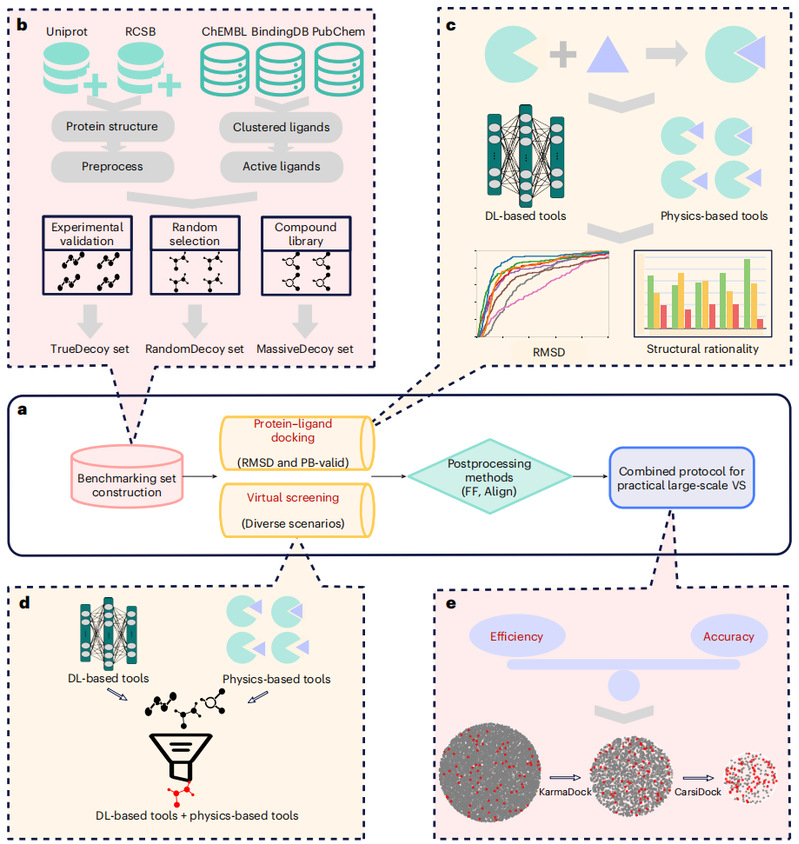Nature Machine Intelligence by the team of College of Pharmaceutical Sciences, Zhejiang University: Benchmarking AI-powered docking methods from the perspective of virtual screening
2025-02-15 | 药学院英文网
Virtual screening based on molecular docking has become a core technology for new drug discovery. Traditional physical model-based docking methods need to rely on different search strategies to explore the conformational space as well as predefined scoring functions to determine the binding modes and binding strengths of different ligand molecules. Due to the computational constraints, it is difficult to achieve full convergence with limited search steps, and the scoring function tends to simplify the protein-ligand interactions, which to some extent weakens its accuracy in practical applications. In recent years, with the rapid development of data science, Artificial Intelligence (AI)-based docking tools have emerged, showing great potential in docking accuracy and speed. However, these tools tend to neglect the physical rationality of the conformations of docked complexes and their actual performance in virtual screening of drugs.

In February 2025, the team of Professor Tingjun Hou and Associate Professor Yu Kang from Zhejiang University published a paper entitled "Benchmarking AI-powered docking methods from the perspective of virtual screening" in Nature Machine Intelligence. The study constructed a comprehensive virtual screening benchmark test set, VSDS-vd, and comprehensively evaluated four physically-based docking methods, four AI-powered docking methods, and two AI-powered scoring functions. The evaluation results show that the AI-driven docking methods are still deficient in the physical soundness of the docking structure, but show great potential in the virtual screening task. Based on the results of the evaluation, the research team proposes a hierarchical virtual screening strategy that achieves a dynamic balance between screening speed and accuracy, and performs excellently in actual large-scale drug screening.

Figure 1. Overall framework and key modules in the study.
The CPS-ZJU is the first author unit of this paper. PhD student Shukai Gu, postdoctoral fellow Xujun Zhang, and researcher Chao Shen of the First Affiliated Hospital of Zhejiang University are the co-first authors, while Professor Tingjun Hou and Associate Professor Yu Kang of Zhejiang University are the co-corresponding authors.
Original link: https://link.springer.com/article/10.1038/s42256-025-00993-0
NEWS
-
10
2025.12
-
27
2025.11
-
25
2025.11
-
03
2025.11
-
30
2025.10
-
29
2025.10
